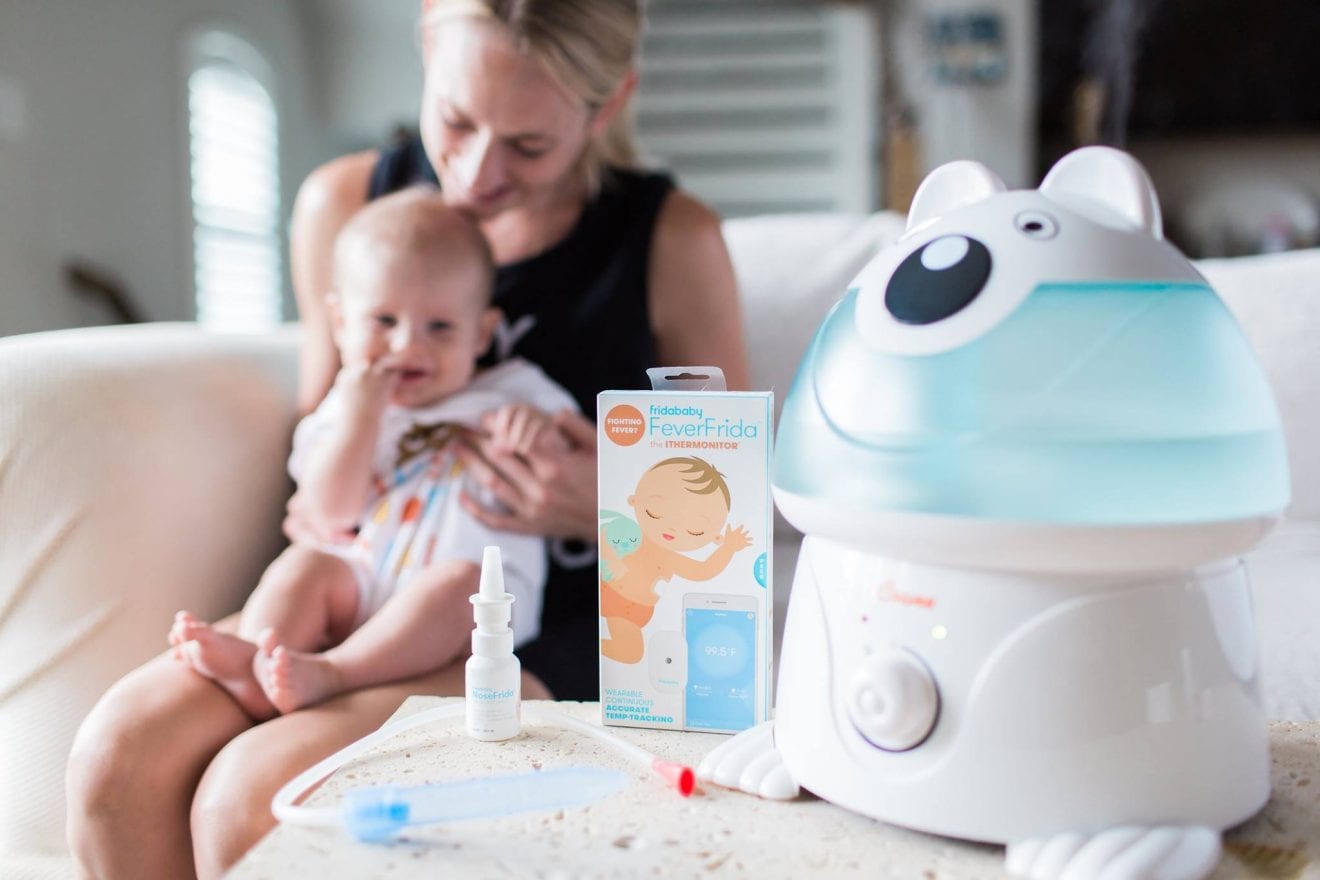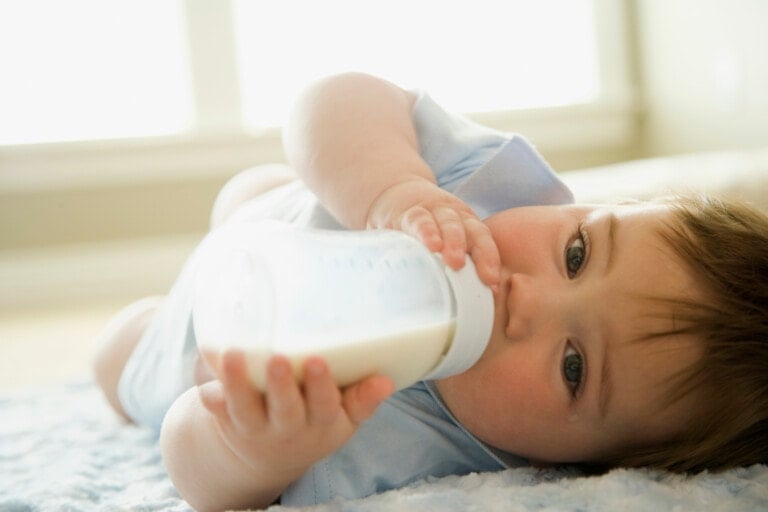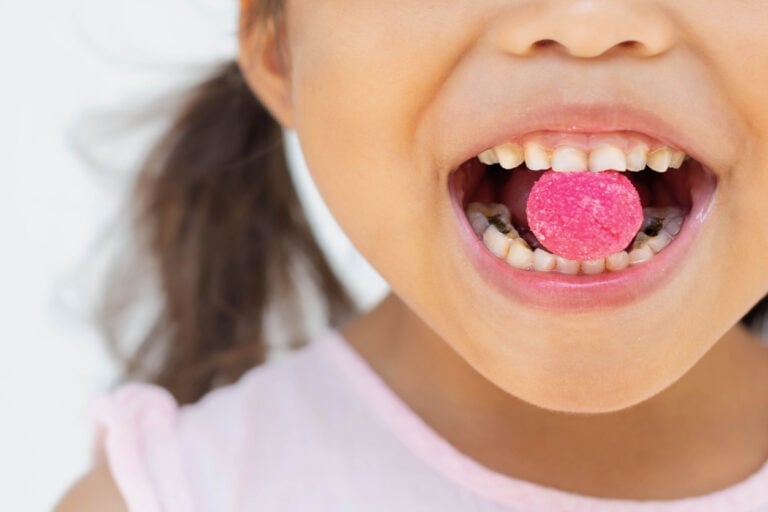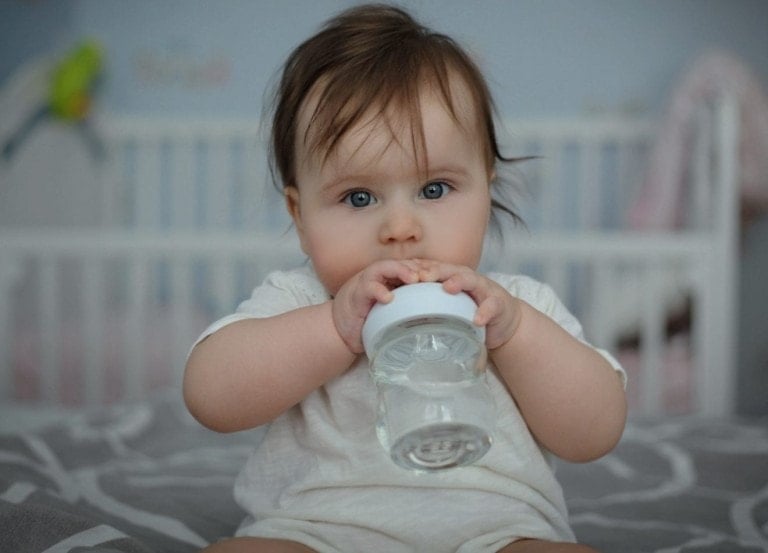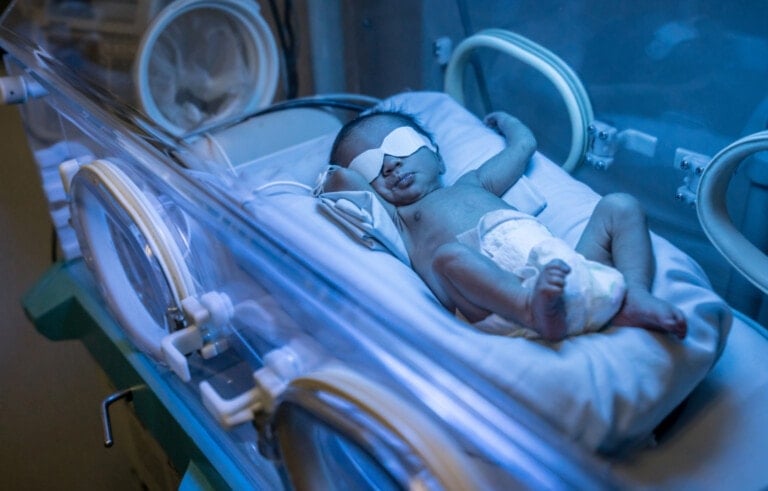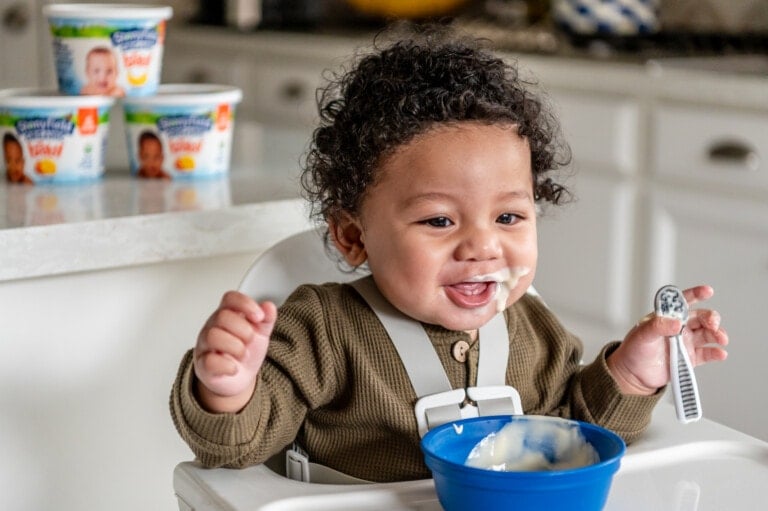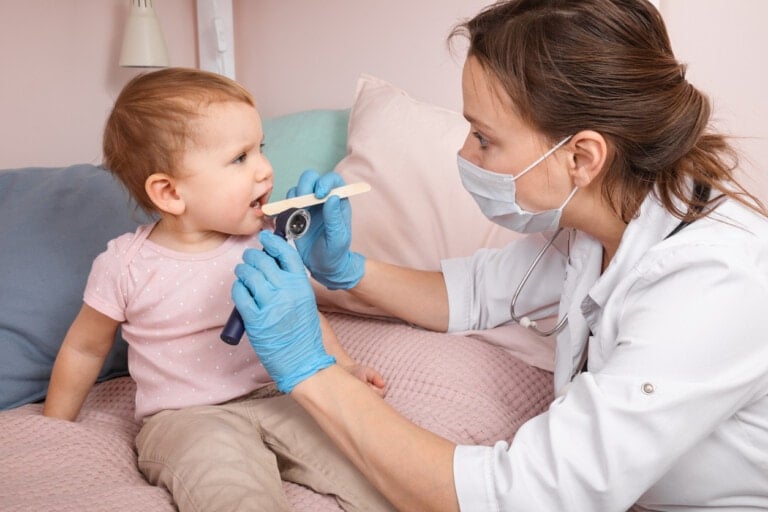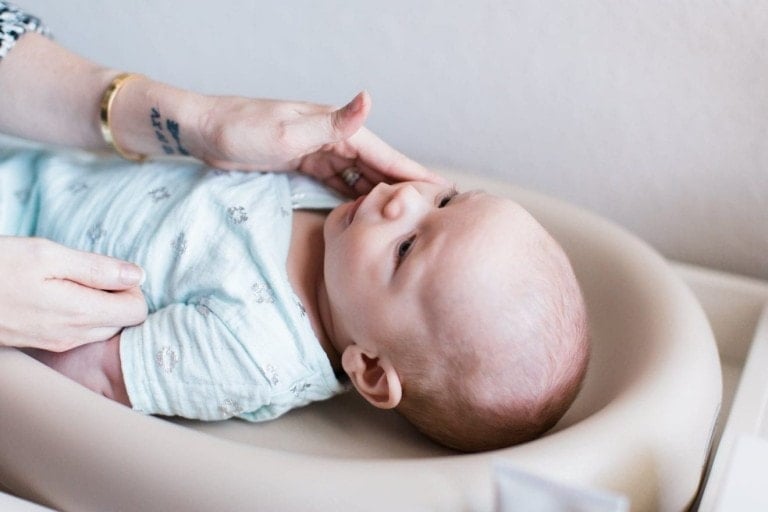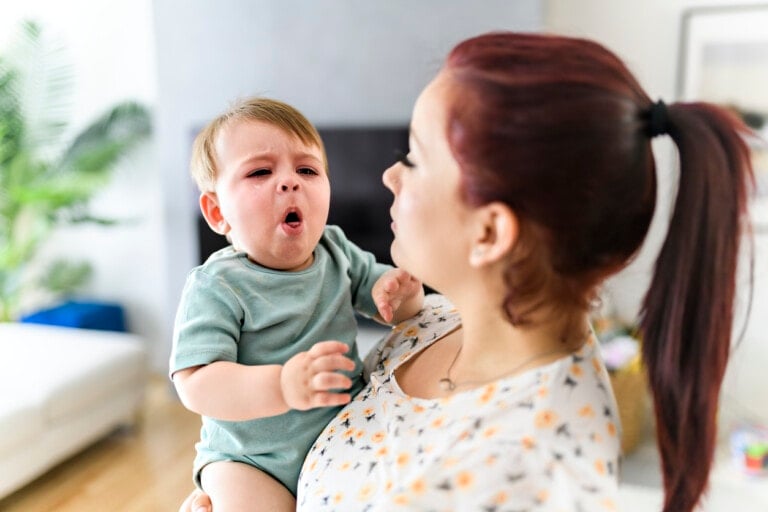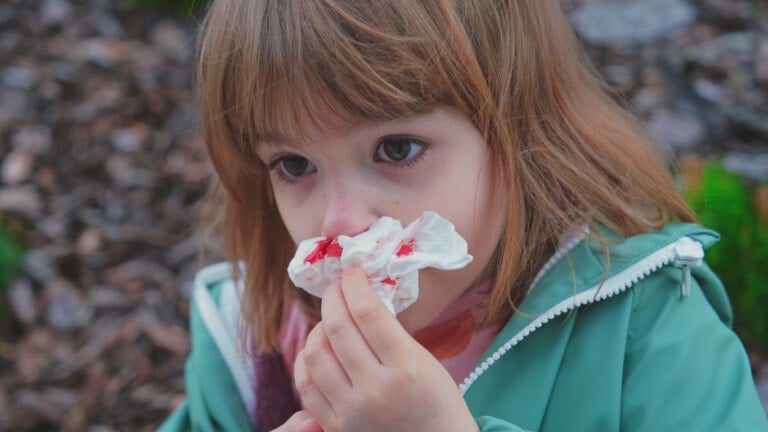As a mom, nothing breaks your heart more than seeing your children in pain. During cold and flu season, I know that the last thing moms want to feel is unprepared if their baby (or babies) gets sick. Because if you didn’t know, the average cold can last up to 10 days . . . And that’s not fun for anyone involved!
First (of course), consult with your child’s pediatrician to rule out that it could be anything more serious. Once you’ve called or met with your doctor and they have confirmed that it is a cold, you can only comfort your baby, treat the symptoms, and be patient as it runs its course. I know . . . it’s miserable. That’s why I am sharing some extra tips on preparing for and treating your baby’s cold symptoms to make it easier for you and your baby.
*Disclaimer: I am not a pediatrician, so this is not meant to be medical advice. I am a postpartum doula (and a mom of two) and have worked with over 300 families over the years with their newborns. I am sharing my experience helping families after their little ones are diagnosed with a cold.
Before
Wash Your Hands
According to the Centers for Disease Control (CDC), 80% of all infectious diseases are transmitted through our hands.1 Ensure that you, your family, and anyone else handling your baby wash their hands and keep them clean. Also, if your child is grabbing things and putting them in their mouth, I would be aware of what’s going in their mouth. (I know that can be not easy, but try your best.) Also, keep their hands clean by washing and wiping their hands.
Recognize the Symptoms
Cold symptoms usually begin with a sore throat, then a runny nose and congestion. It can be challenging to tell if your baby has a sore throat, but they will usually cough more frequently with a sore throat and be fussier than usual. You may notice that your baby has a clear, runny discharge from their nose. With time, it can become thick and discolored. (This is normal with a cold.) Your baby will also probably have a fever with these symptoms. These all indicate that your baby might have a cold and that you should consult your baby’s doctor.
After
Once your doctor has confirmed that your baby has a cold, here are a few things you can do to help.
Get a Humidifier
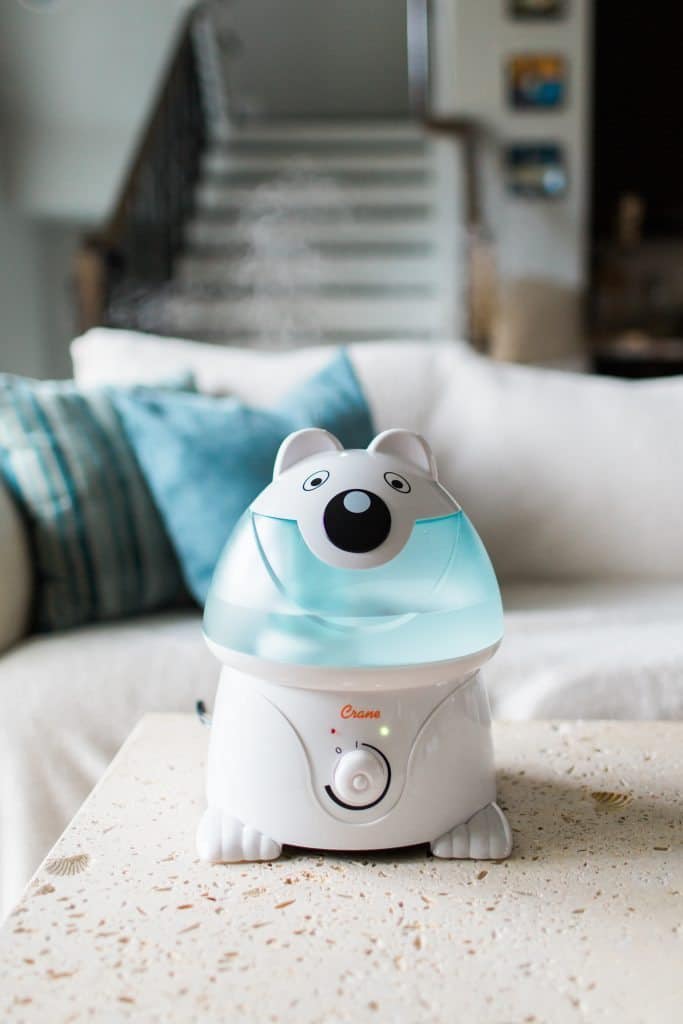
Have a cool-mist humidifier in your baby’s room while they’re sleeping. It is beneficial when treating a cold. I highly recommend it because the moisture the humidifier releases helps your baby breathe easier by softening the mucus in their nose and chest. Turn it on during each nap and at night when your baby goes to sleep to help them sleep better and breathe easier. My favorite humidifiers are the ones from Crane. Their cute designs and excellent quality make it a family favorite.
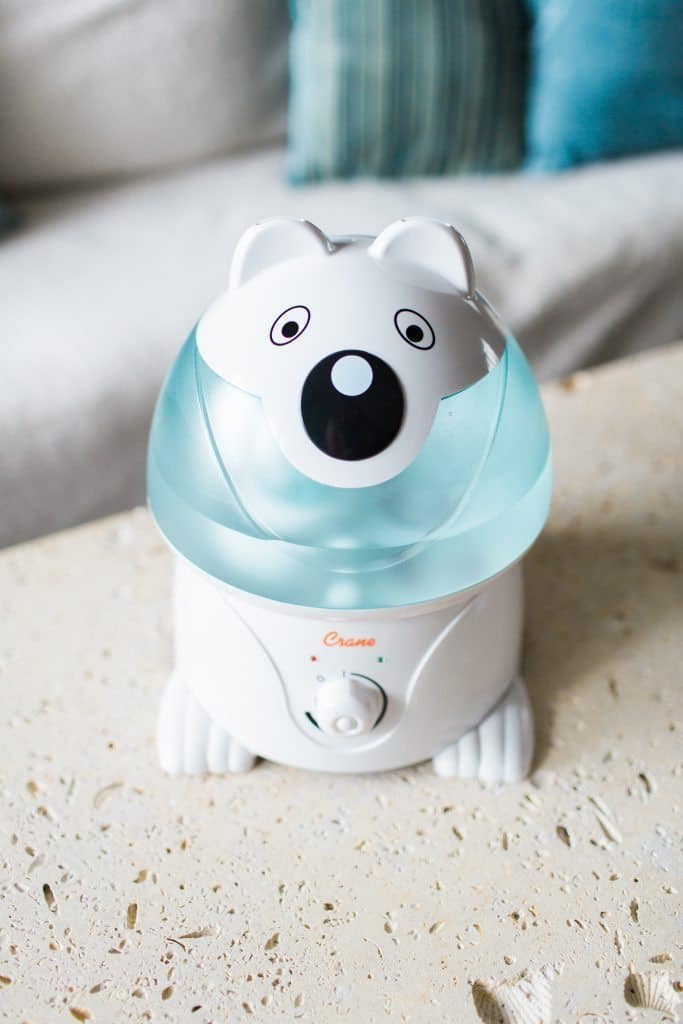
NOTE: Be sure to thoroughly wash and dry your humidifier to prevent contamination from bacteria and mold. You should rinse your humidifier once per day and thoroughly clean it at least once per week.
If you don’t have a humidifier and need instant relief, give your baby a warm bath or sit with them in the bathroom while the shower runs for about 15 minutes. The steam will also help them breathe a little easier.
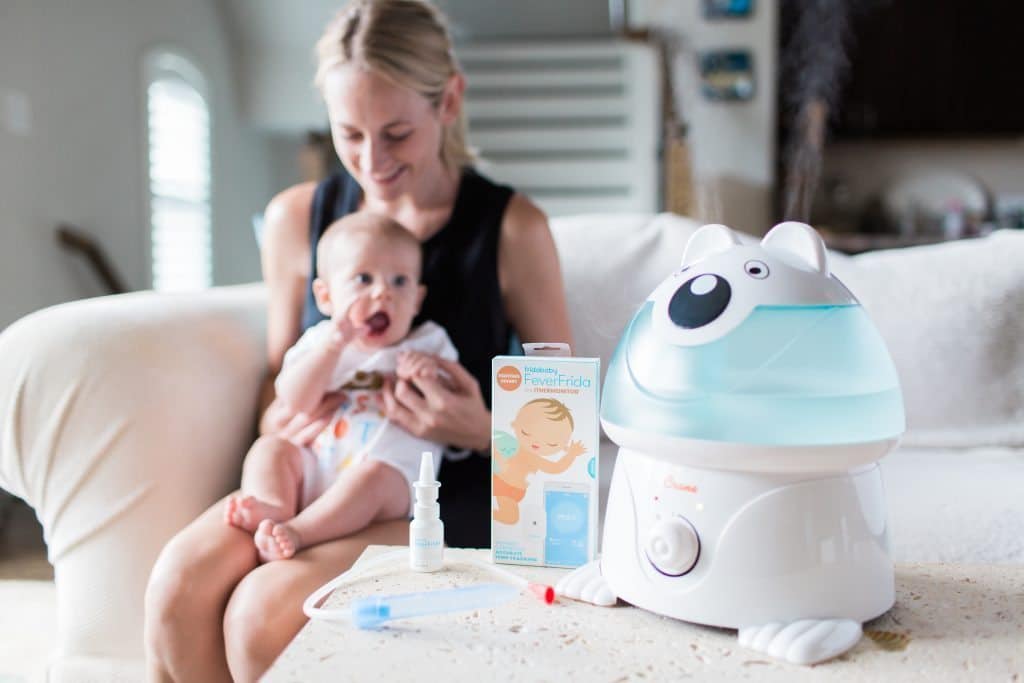
Breastfeed / Keep Them Hydrated
Staying hydrated is essential when battling a cold, no matter what age your child is. Encourage your baby to drink plenty of fluids—try to breastfeed more often or give your baby a few more bottles while your baby is sick. Babies will usually want to nurse or take a bottle more frequently when sick because that’s what they need for comfort.
If you catch what your baby has or are afraid to pass on a cold to your baby, the antibodies your body produces will pass on through your breast milk, which will help protect your baby and make them feel better faster.
NOTE: Be sure to watch for signs of dehydration. Those are:
- no wet diapers within 10-12 hours
- eyes and fontanels (the soft spots on their head) appear sunken in
- less elasticity in the skin
- dry mouth
- decrease or absence of tears
- irritable, tired, and thirsty
If you see these symptoms, call your pediatrician and (more than likely by your pediatrician’s request) head to the hospital for IV fluids.
Saline Drops & NoseFrida
Did you know that babies don’t master breathing through their mouths until they are 4 to 5 months old? Imagine if they were to have a cold, how difficult it would be for them to breathe through their nose! Even after 4 to 5 months, it’s difficult for any baby to sleep soundly when congested. Babies also can’t blow their noses for relief, so we must help with the stuffiness. I recommend using the NoseFrida and saline spray (which comes in the NoseFrida Kit package) to help when your baby is congested.
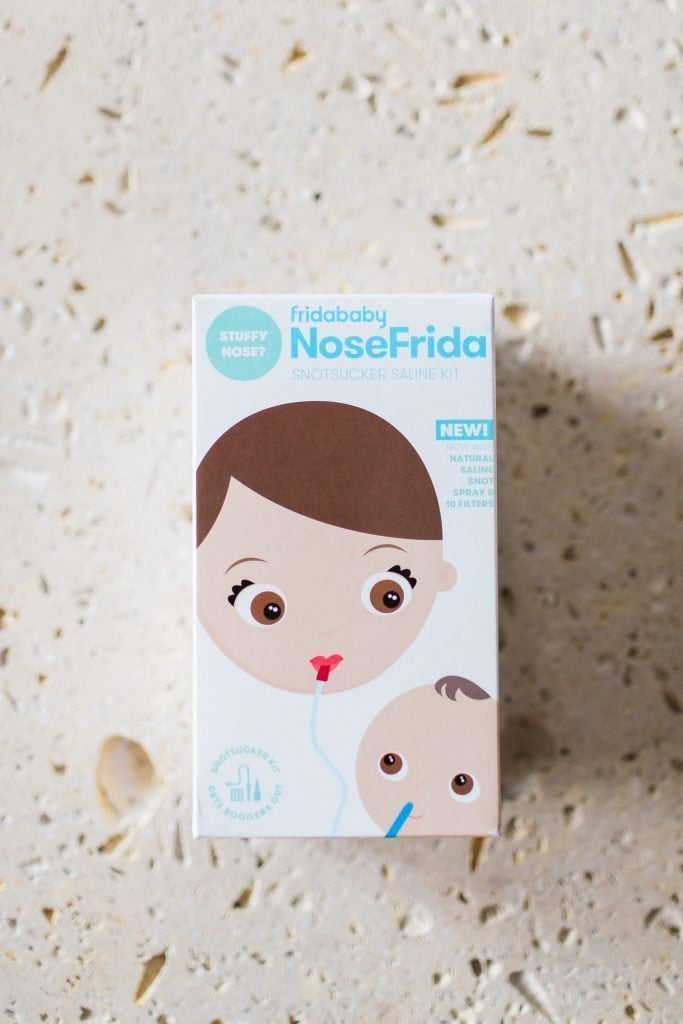
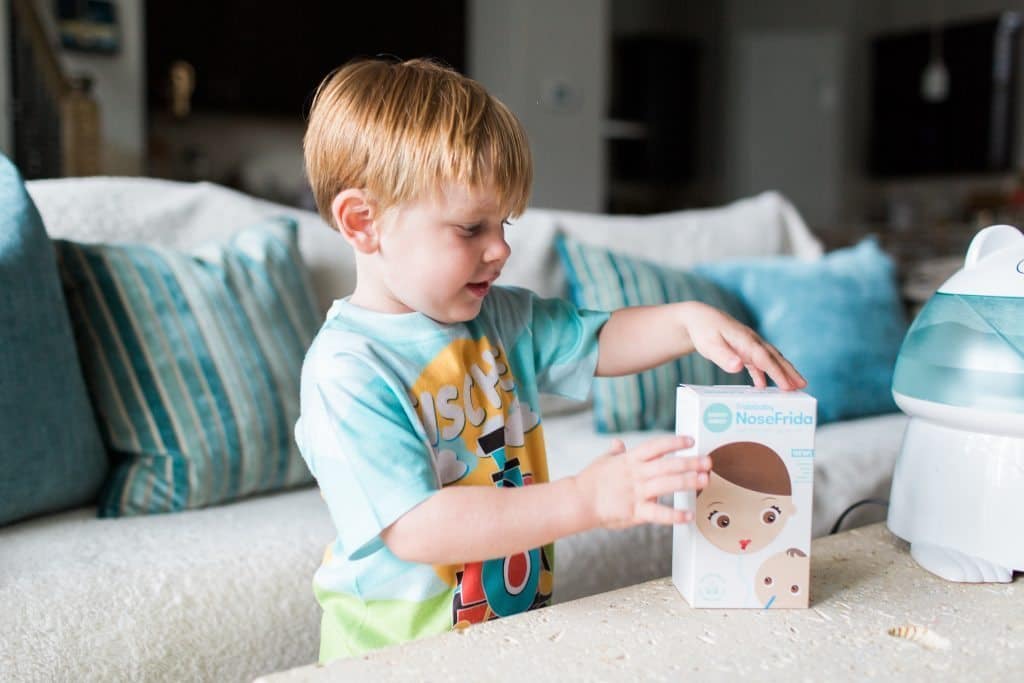
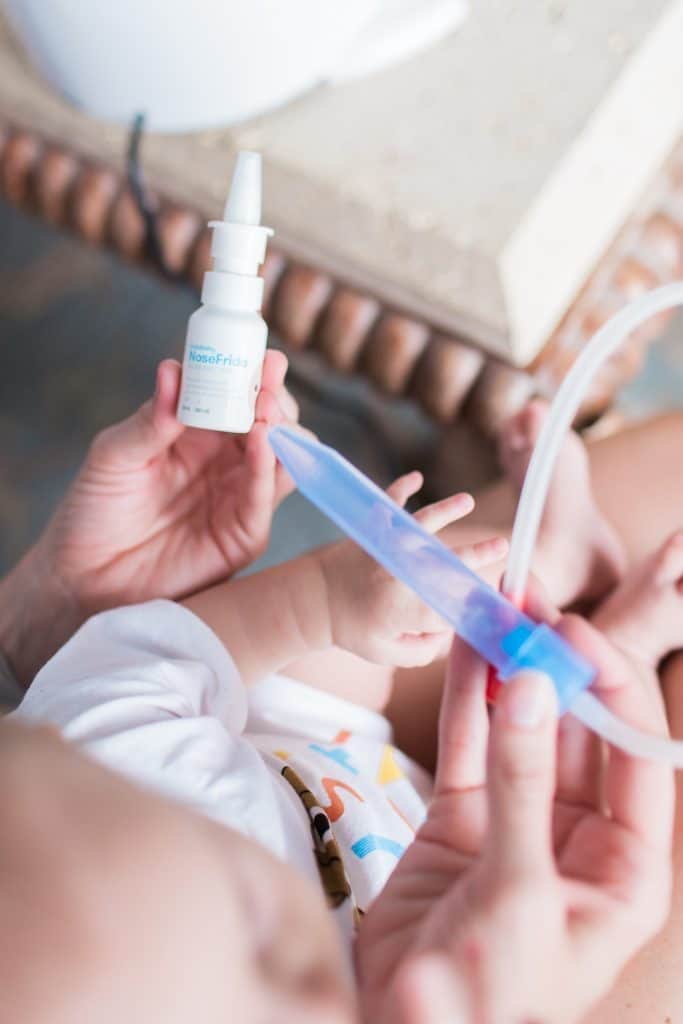
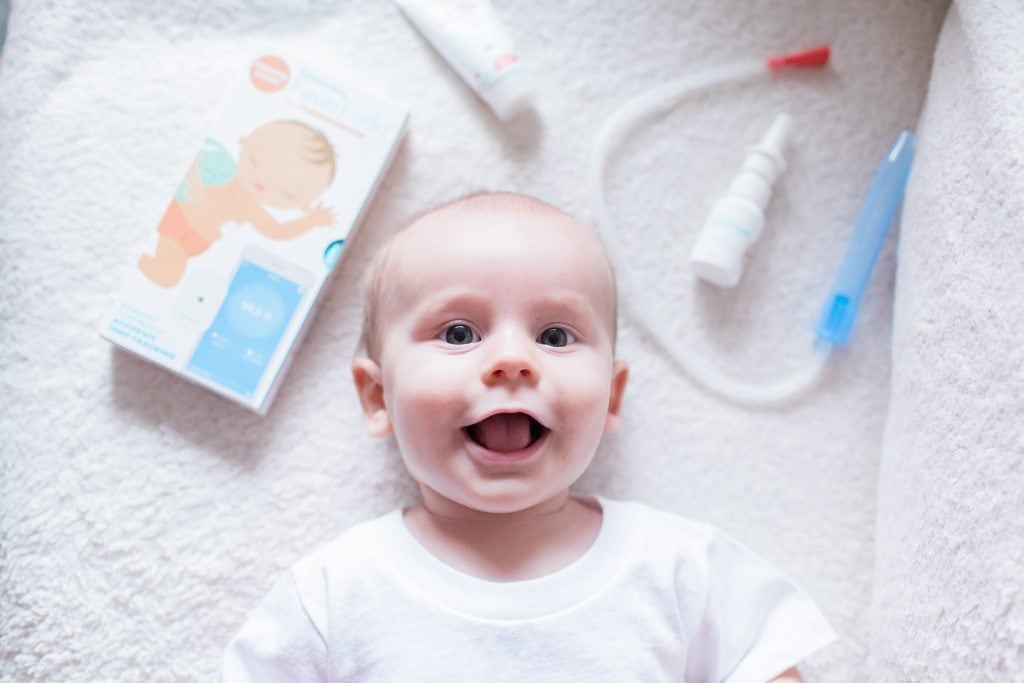
First, lay your child down and put a few saline drops (or one spray) into each nostril. Wait about a minute, then use the NoseFrida to suck out the secretions. (Yes, your child will not like either of these, but it will moisten the mucus and make it much easier for you to remove more from their stuffed nose and help your baby breathe. That ultimately will make baby happy. Every parent swears by it!) I suggest doing this before your baby goes to sleep and before meals so your baby can breathe and nurse.
Buy NoseFrida Kit PackageSoothe Their Nose
With a runny nose, you will be wiping your baby’s nose quite often. Doing this repeatedly with a tissue can irritate their delicate skin. I recommend using a warm, wet washcloth to help prevent this irritation, or you can use Boogie Wipes to soothe their sensitive skin. The natural saline tissue dissolves mucus, while the aloe and chamomile soothe their sensitive little noses.
Buy Boogie WipesElevate the Head
If your baby is having trouble sleeping, I suggest elevating the head of their crib (or bed) to help them sleep at a slight incline. This can help with drainage and relieve your baby’s postnasal drip. You can do this by placing a couple of towels or books under the head of the mattress so that the baby’s head is higher than their body.
NOTE: Never use pillows under your baby to prop up your baby since they’re suffocation hazards. Also, do not prop up the whole crib or bassinet since it could tip over.
Thermometer & Medication
Once you have checked your baby’s temperature and have confirmed that your baby does have a fever, you can treat mild fevers with acetaminophen, ibuprofen, or Baby Tylenol.
NOTE: Only use medication after you have consulted with your baby’s pediatrician and a pharmacist. You want to ensure that you will use the correct medication and dosage for your child’s age. So, as always, consult your doctor first.
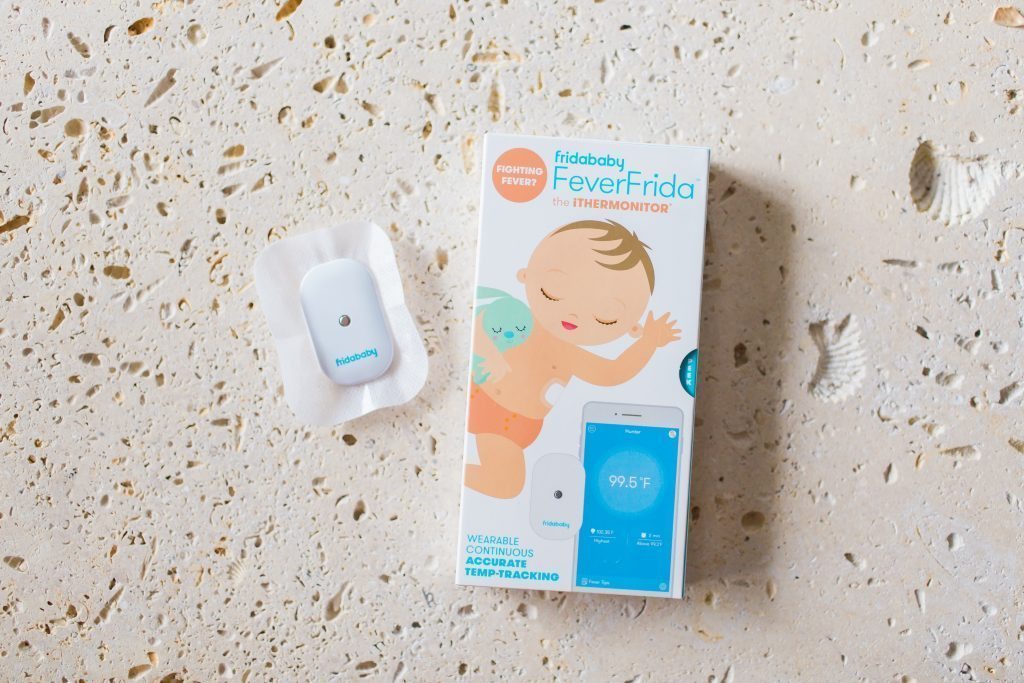
I recommend taking your baby’s temperature regularly. The Fridababy FeverFrida iThermometer can help since it checks your baby’s temperature every four seconds without waking them. It will alert your smartphone (via Bluetooth) when their temp goes above a predetermined threshold and continuously stores data for pediatrician visits and medicine dose reminders.
Buy FeverFrida iThermometer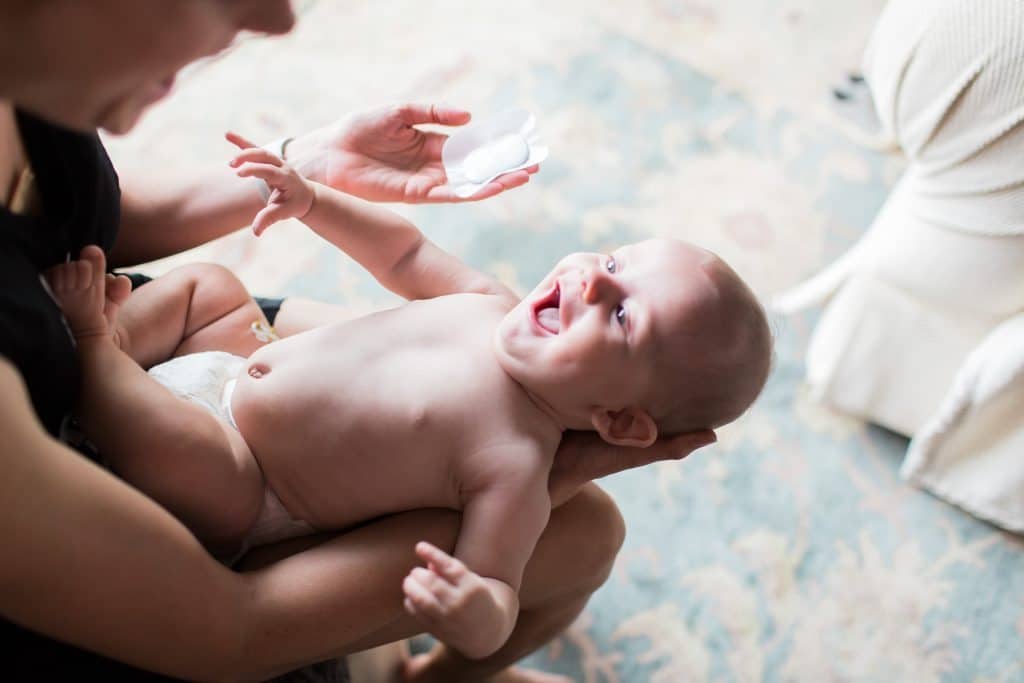
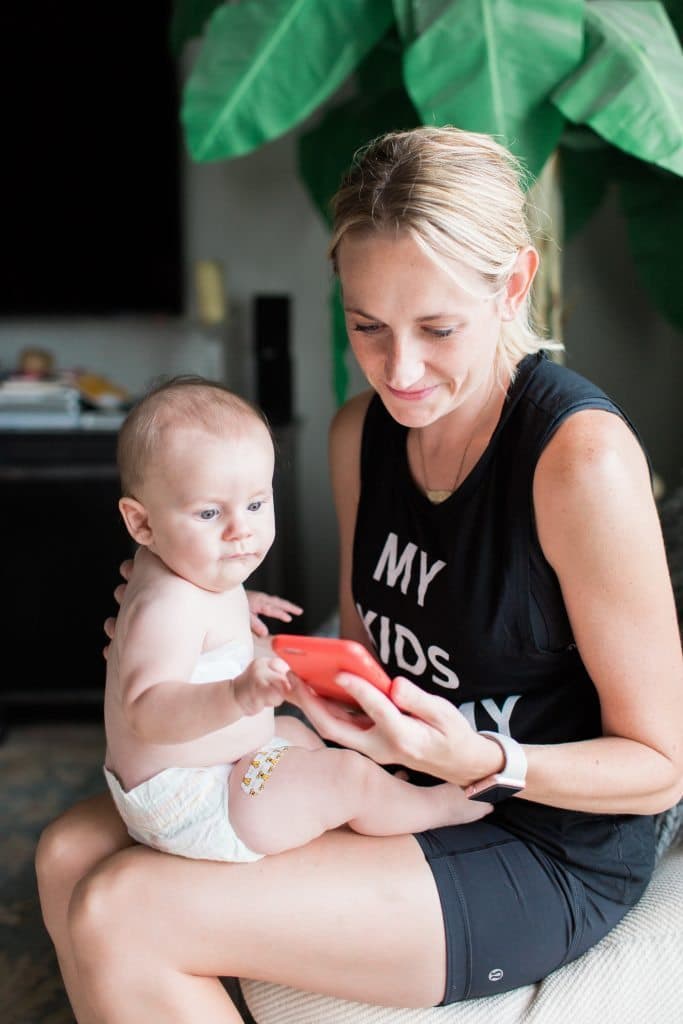
Baby Vicks
The soothing eucalyptus, rosemary, and lavender in Baby Vicks help calm and soothe your baby. Rub this on your baby’s feet (put their socks on over it) and chest before naps and before they go to bed for the night.
Buy Baby Vicks NowRest
Sleeping is tough when little ones are sick, but do your best to ensure they get as much rest as possible. Plenty of rest and good sleep will make them feel much better faster.
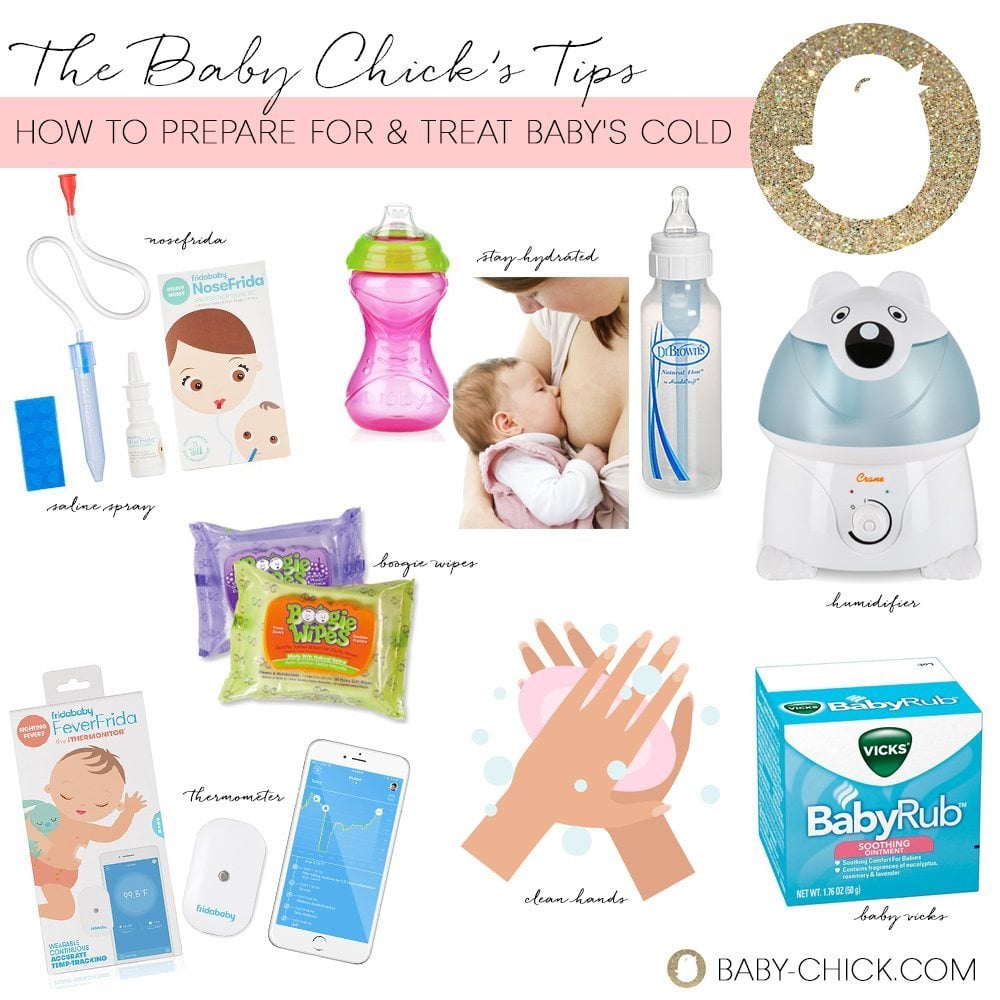
Patience is key. You can only monitor and cuddle your baby while waiting it out. But if you think something is wrong, never hesitate to call your pediatrician’s office with questions. Trust your gut. You know your baby better than anyone else. These tips should help make the process a little easier for you and your baby.













